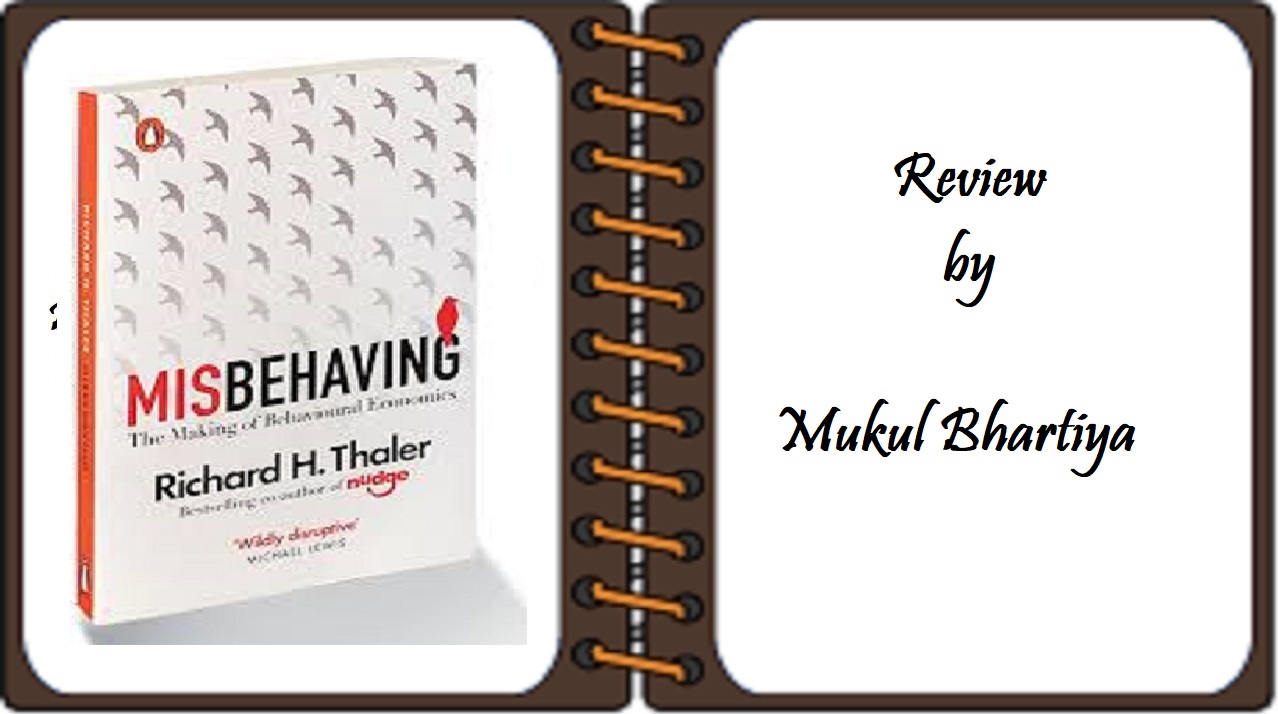
First time I read any book on behavioural economics was “Thinking Fast and Slow” by Nobel award winning Psychologist Daniel Kanheman around six years back and I got blown over by it. Having spent better part of my life in food retail, understanding human behaviour through historical data collected through weekly or monthly sales was quite a task, because the element of biases, heuristics, noise etc. are something I had just assumptions but no authoritarial backing. Many a times, standing on the floor of the store, I could sense the consumer behaviour but could not call it a behavioural pattern of financial decision making due to not being exposed to psychology part of human decision making. Nature of the job was to achieve the sales numbers, so academic aspect of conclusions coming from data never became a topic of discussion among peers and colleagues.
As my curiosity increased in this subject, I pursued many online courses available across different platforms and read many books on it along with neuroeconomics, neuromarketing and neuro-consumer Science. In this pursuit, I recently found a book “Misbehaving: The Making of Behavioural Economics”, written by Richard H. Thaler and published in 2015. Mr. Thaler is known as father of Behavioural Economics and won Nobel Prize for Economics in 2017.
This books describes his journey of exploring, experimenting, understanding, consolidating and presenting the role of different human behaviour behind economic decision making more famously known as “biases and heuristics”, the names given by famous Daniel Kanheman and Amos Tversky.
Written in eight blocks (Beginnings, Mental Accounting, Self-Control, Interlude, Working with Danny, Engaging with the Economics Profession, Finance, Welcome to Chicago, Helping Out) divided in thirty three chapters, this book is a revealation of a completely new dynamics of human financial decision making and revelation to read for anyone who is even not conversant with the idea of either psychology or economics.
From Endowment Effect to The List to Value Theory to The Gauntlet to Bargains and Rip-Offs to Sunk Cost to Buckets and Budgets to The Willpower to The Planner and The Doer to Misbehaving in the Real World to What Seems Fair to Fairness games to end with Save Money Tomorrow, Going Public and Nudging in U.K, this book is the journey of Behavioural Economics with the father of very concept himself.
I simply love the concept of “Endowment Effect”. We overvalue what we have regardless to what is its market value. If we are asked to pay surcharge to facilitate credit card transaction cost, we frown over that, but if that surcharge is included in the product cost, we don’t mind because that’s not obvious to us. While two are one and the same thing, but not getting discount is just a lost opportunity cost for the consumers while paying extra for credit card transaction looks like direct cost. This is not only true for the economic decisions but for ideological view points as well. People value their opinion more over others and they go out in public just to confirm their opinion. “Endowment Effect” coupled with “confirmation bias” becomes “myside bias”, the reason behind big ideological divides.
Mental accounting is another topic which I find fascinating. Recently I bought a laptop for Rs.39.450/- for multitasking of a little lesser known brand. I got a Rs.1500/- instant discount due the tie-up between my credit card issuing bank and seller. Few days later, another Rs.1250/- cash back was credited to my wallet. Along with the features, company offered two years service warranty as against of one year given by other known brands and I got one year Microsoft 365 subscription free as well. I had done good two weeks research before buying the laptop and had seen umpteen videos and read thousands of reviews of different brands before making this decision. Laptop of known brands with similar features and warranty were at more than Rs.65,000/-. So when I made this decision, got this product, set up my device and Microsoft account, I found it very smooth in operation. It proved to be great bargain for me. After that whomsoever I told about the purchase, I not only explained the discount and cash back, but also the cost of one year Microsoft 365 Subscription, cost of 1 TB storage on cloud, and cost of one extra years’ warranty. Before that, I was against the idea of having cloud storage space, because I not only found it costly but leaving the responsibility of my data on someone else. Hard Drive Storage meant complete control over my data to me. But after getting it along with Few days back, I had almost made the decision to buy a laptop for Rs.61,000/- with the same features but somehow I ended up not buying it. So, my satisfaction level from making the purchase decision which I made is like absolute bargain.
This book is full of real life experiments and examples and is a must read for everyone who wants to know the science behind financial decision making.
You can buy the book following this link Misbehaving: The Making of Behavioural Economics